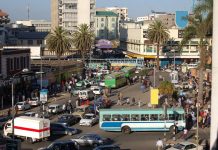•The low output is occasioned by among others, a short in supply of spare parts and reduced industrial activities on Covid-19 pandemic.
•Kenya imports an average 7,000-9,000 units a month, mainly from Japan (80 per cent ),United Arab Emirates, United Kingdom, Singapore and South Africa.
THE price of imported second hand cars is likely to rise in the next two months, according to industry players, with global market trends reflecting the same.
This follows a drop in manufacturing of the units, mainly in the leading market source of Japan, occasioned by a shortage in supply of spare parts and reduced industrial activities as Covid-19 remains a global pandemic.
Output of cars, production machinery, steel and other broad industries remained subdued in July-August falling by up to 57.2 per cent, Japan’s Ministry of Economy, Trade and Industry (METI) data on industrial production indicates .
Motor vehicle production fell by 38.9 per in August, with global production at major automakers, including Toyota Motor Corp and Nissan Motor Co, slumping 62 per cent in recent times.
It fell by 55 per cent in April, as car demand plunged globally amid lock downs to stop the virus from spreading.
Japan is facing a shortage of motor vehicle spare parts from key markets among them China, Brazil and Korea, slowing down its unit production, which has seen prices of units in the local market increase by between 16-20 per cent.
It takes over 30,000 parts to build a complete car.
With global trade slowly picking against low output and high demand in the local markets (abroad), the prices of units coming to Kenya are likely to go up,Kenya Auto Bazaar Association (KABA) said yesterday.
“Car prices in Japan have gone up as a result of increased local demand. This price margins will affect the final prices when these vehicles land in Kenya,” KABA Chairman John Kipchumba said yesterday.
He noted that vehicle imports from Japan have also reduced as most production is currently taken up at home.
Kenya imports an average 7,000-9,000 units a month, mainly from Japan (80 per cent ),United Arab Emirates, United Kingdom, Singapore and South Africa. This goes up to 12,000 units when the economy is doing well.
The spike in prices is expected to slow down car business in the country, which is still reeling from effects of Covid-19, as households reduce on luxury spending on tough economic times.
“People are buying though the purchasing power has gone down. It is not business as usual,” Car Importers Association of Kenya national chairman Peter Otieno told the Star in a telephone interview.
Dealers have had to cut prices to sale units.
Robert Ndegwa, a Nairobi-based car dealer yesterday said he has had to sale at a loss as Kenyans bargain for lower prices.
“Units are moving but not as fast. Sometimes we are forced to sale at a loss, for instance a car that sells at Sh2.2 million on normal days, are forced to sale at Sh2million,” said Ndegwa, of The Car Guy Kenya company.
Abbas Mohhamed, a Mombasa based car dealer has equally noted a slow movement of units.
“Business is very low which is also affecting how we import. If we don’t sale them we cant import and this means out business is on its knees,” Mohhamed, who imports from Japan and UAE, told the Star.
The weekly Auto Bazaar sale at Nairobi’s Jamhuri park has however reported increased activities with this week hitting about 1,000 units, availed for sale.
Second hand cars dominate the local market with buyers in this segment spending an estimated Sh60 billion annually on the units, whose prices range from as low as Sh500,000 to an average Sh2.5 million.
SOURCE: https://www.the-star.co.ke/business/kenya/2020-10-27-used-car-prices-to-rise-20-as-global-output-falls/






![Top 20 Used Cars to Avoid Buying in Kenya – [PHOTOS]](../../../blog/wp-content/uploads/2013/11/top-used-unreliable-cars-to-avoid2-80x60.jpg)




![Top 20 Used Cars to Avoid Buying in Kenya – [PHOTOS]](../../../blog/wp-content/uploads/2013/11/top-used-unreliable-cars-to-avoid2-100x70.jpg)





